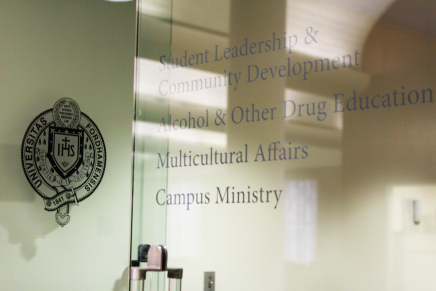Its inability to effectively communicate with students resulted in my not being able to direct and Fordham Experimental Theater not being able to perform The Rocky Horror Picture Show. As has been previously covered in The Fordham Ram, Shannon Driscoll, the assistant director of Student Affairs, failed to communicate with me or to purchase the rights for Rocky Horror, despite having the script and materials submitted two and a half months prior to application.
The Mimes and Mummers have run into problems as well. The director of our production of Spamalot had his payment delayed for over two months by OSLCD.
During our month working with him and for two months after, over a dozen emails from myself and the directors to Driscoll went unanswered. He was only paid once he threatened legal action.
Although I could list grievances for pages, I hope that this news will herald a positive change for the office.
It was recently announced at a United Student Government meeting that OSLCD will be hiring a new staffer, with an unspecified title, to enable the office to work more effectively. Currently, there are over 100 clubs at Fordham, and only one administrator can greenlight all club spending and activities. Driscoll is inundated with a heavy work load, perhaps the heaviest of any individual worker in OSCLD.
“USG is confident that the new staff member will improve the response time of OSLCD,” said Anisah Assim, FCRH ’16, senator and Sustainability Committee chair. “Hiring a new staff member will allow OSLCD to cope with the increased activity that these clubs have generated,” she said.
Either hiring a second assistant director, a new graduate intern or even assigning some students to help work on paperwork and greenlight OrgSync requests can help make the process run faster and more efficiently.
It is difficult to expect one person to work with the executive boards of 100-plus clubs and be able to do so to the satisfaction of all club leaders. Alanna Nolan, assistant dean for OSLCD, said, “We were approved for a new position that will be working specifically in the club and organization area. Since 2010, we have grown from 80-plus student organizations to 120-plus.” These new clubs need additional operational support, and a new staffer will help, but it is only part of the solution.





